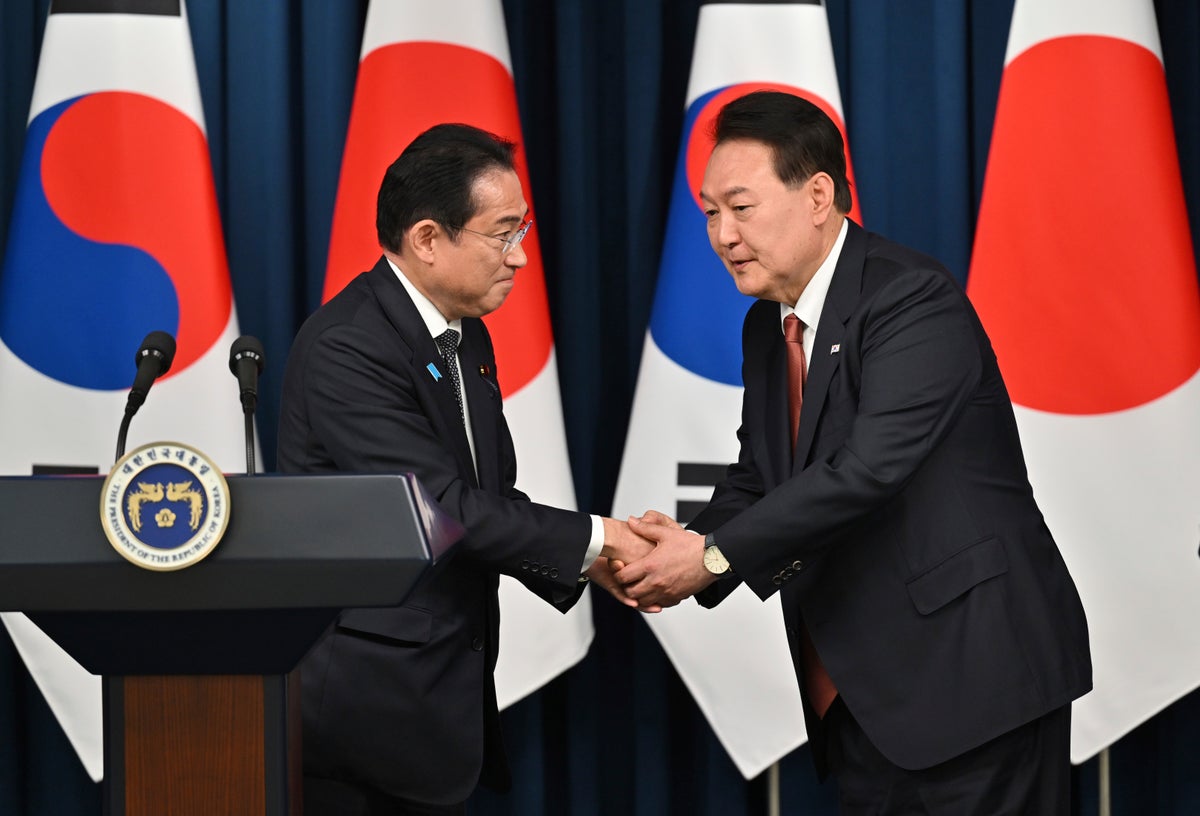
Japan, the United States and South Korea are negotiating an agreement on sharing real-time data on North Korean missile launches, as cooperation among the three nations becomes increasingly important amid growing nuclear and missile threats from the North, Japan’s chief government spokesperson said Tuesday.
Chief Cabinet Secretary Hirokazu Matsuno said there has been no agreement yet, but “I understand that defense authorities are vigorously proceeding to set up an arrangement."
“The security environment surrounding Japan and South Korea is becoming more severe and more complex, and coordination between the two countries as well as trilaterally with the United States has become increasingly important,” Matsuno said.
Japan and South Korea are both key U.S. allies and their cooperation is key to Washington’s security strategy in the Indo-Pacific as tensions grow with China, North Korea and Russia.
Japan and South Korea have been separately linked to data from U.S. radar systems but not directly to each other due to difficult relations strained by disputes over history, most recently over South Korean court rulings in 2018 ordering Japanese companies to compensate Korean workers for wartime abuses including forced labor. Leaders of the three countries agreed last November to speed up information sharing on North Korean ballistic missile launches.
Japan's Yomiuri newspaper reported earlier Tuesday that Japan and South Korea are nearing agreement on connecting their radars via a U.S. system to share real-time North Korean missile warning information, which would help strengthen Japanese missile defense capabilities.
The Yomiuri said the three countries are expected to reach an agreement in early June on the sidelines of the Shangri-La Dialogue, an annual defense ministers’ conference being held in Singapore. Japanese and South Korean defense ministers will hold bilateral talks during the conference, the Yomiuri said.
Ties between Japan and South Korea have rapidly thawed in recent months, largely because of their shared sense of urgency over escalating regional security threats.
South Korean President Yoon Suk Yeol’s conservative government announced in March a domestically contentious plan to use local corporate funds to compensate Korean victims of forced labor without demanding contributions from Japan. Yoon then visited Tokyo and agreed with Prime Minister Fumio Kishida to overcome their disputes over history to deal with more pressing concerns, prompting a resumption of defense, trade and other talks.
Kishida visited Seoul this week, where he avoided making a new, direct apology over Japan’s 1910-1945 colonization of the Korean Peninsula but sympathized with Korean victims over their ordeals in an apparent effort to maintain the momentum for improving ties.
Kishida said he and Yoon will pay respects at a memorial for Korean atomic bomb victims in Hiroshima during this month's summit of the Group of Seven leading industrialized nations, where Yoon has been invited as a guest. Tokyo will allow South Korean experts to inspect preparations at the tsunami-wrecked Fukushima nuclear power plant for the release of treated but still slightly radioactive wastewater, which many Koreans oppose, Kishida said.







